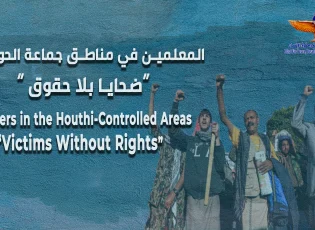A new report by Maat criticizes the role of governments and technology companies in violating freedom of expression on the Internet
Okeil: Abi Ahmed threatened to cut off the internet forever if the criticism levelled against him continued
Sherif Abdul Hamid: Technology companies are not neutral and violate freedom of opinion, and what happened in Gaza recently sets the best example
Maat for Peace, Development and Human Rights issued a new report entitled "Unfair Cooperation: The Role of Governments and Technology Companies in Violating Freedom of Opinion and Expression on the Internet", which stressed that the right to freedom of opinion and expression on the Internet is a human right guaranteed to all people under a range of international conventions, especially the Universal Declaration of Human Rights and the International Covenant on Civil and Political Rights, which serve as a necessary pillar for the establishment of a democratic society. The report indicated that citizens worldwide depend on the internet, and this dependence has increased as people began excessively using various websites and platforms of social communication in all aspects of life, especially in light of the Coronavirus pandemic, which has considerably affected the population’s dependence on the internet for various purposes.
The report clarified the impact of the increasing use of the Internet, whether by ordinary citizens or by human rights defenders, and opposition, and the consequent systematic violations committed by governments on freedom of opinion and expression in cyberspace. Such violations included cutting off the internet in different regions to counter any peaceful gatherings against governments, blocking anti-government content on social media platforms, or removing the content of dissidents, human rights defenders or certain websites that deemed critical to or threatening the government. The report also focused on the role played by technology companies in undermining freedom of opinion and expression on the internet, in line with the governments’ policies. The complicity of technology companies with various governments doesn’t only pose a major threat to freedom of opinion and expression on the Internet, but also contravenes the United Nations Guiding Principles on Business and Human Rights and makes these companies involved in human rights abuses.
In this context, Ayman Okeil, a human rights expert and president of Maat, stated that over the past years, various governments have resorted to cutting off the internet to face any threats that may arise as a result of coordination between protesters on social media, or using these platforms to mobilize the public to go out in the street. These governments also appear to control the companies providing internet services, which was evident when the Ethiopian government cut off the means of communication in different parts of the country, following the demonstrations that erupted in the aftermath of the killing of the popular Oromo artist and singer Hachalu Hundessa, who was shot dead in Gilan Square in the capital, Addis Ababa. Okeil added that the Ethiopian government resort to cutting off the internet in times of tension and strikes by issuing orders to the country's only state telecommunications company. The Ethiopian officials declare openly that they do cut the internet. Abiy Ahmed, Ethiopia’s Prime Minister, said earlier that "Internet services is not water or air that we breathe, if we found enough reason to cut we will cut it across the country." He also threatened that if deadly unrest in the country continues with online incitement, the internet in the country could be cut off “forever.”
In a similar vein, the Ethiopian government has also resorted to cutting the internet in its struggle against the Tigrayan People's Liberation Front (TPLF). Since November 2020, Ethiopia has led a military campaign, which resulted in a range of physical violations and massacres that left an unlimited number of deaths, such violations amount to war crimes and require accountability and no impunity.
For his part, Sherif Abdul Hamid, director of the Research and Studies Unit at Maat, said that, in recent periods, governments have resorted to cutting off the internet more than 200 times in 33 different countries, including 60 times in protest against the economic and political conditions and human rights violations. Certain regions have completely been cut off from the world, and their residents could no longer communicate with the outside world or with each other, as happened in the recent protests in Iran. Abdul Hamid added that technology companies are undoubtedly involved in human rights violations, topped by the right to freedom of opinion and expression. He added that certain companies have been subject to government blackmail and have violated all standards or principles of privacy of users. Just as there is a clear responsibility on governments to respect human rights, including freedom of opinion and expression on the internet, technology companies such as Facebook, Twitter, Google, and Yahoo, have equal responsibility towards users. In addition to human rights violations, these companies have shown lack of neutrality and partiality towards certain governments, which was demonstrated by removing the Palestinian content on these platforms in favor of the Israeli government during the recent war on Gaza.
![]()
 |
 |











